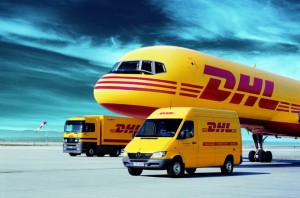
Logistics leader Deutsche Post DHL is banking on developing economies in the Asia-Pacific region—with its multihub strategy centered on China PHOTO FROM DHL.COM.PH
SHANGHAI—International postal and logistics leader Deutsche Post DHL is banking on developing economies in the Asia-Pacific region—with its multihub strategy centered on China—to fuel the growth of its three business divisions: DHL Express, DHL Supply Chain and DHL Global Forwarding.
During the recent inauguration of DP DHL’s facilities in Shanghai and Hong Kong, Frank Appel, DP DHL chief executive officer, said Asia-Pacific accounted for 20 percent of the company’s revenues and that China’s growth potential was great.
By 2017, revenues generated in Asia-Pacific should contribute around a third to DHL’s earnings, Appel said.
Today, the more than 4.2 billion euros in revenues generated in China represent more than half of DHL’s total Asian revenues, he said.
Overall, DHL has invested more than $2.5 billion in Asia over the last couple of years, company officials said.
DHL recently inaugurated its $175-million DHL Express North Asia Hub at the Shanghai Pudong International Airport and its DHL Supply Chain Mega Hub in Hong Kong.
The company also announced plans to invest $132 million to add eight dedicated aircraft to service high-demand routes between Shanghai and North Asia, Europe and the United States by 2014.
Appel said: “DHL Express North Asia Hub is a logistics milestone in DHL’s Asia-Pacific network and the culmination of a multihub and aviation strategy that cements our leadership position in terms of connections, convenience and cost-effectiveness.”
DHL Express’ four hubs in Asia-Pacific—Shanghai, Hong Kong, Bangkok and Singapore—link to over 70 DHL Express Gateways in the region. DHL’s infrastructure is served by a comprehensive air network of over 40 planes covering 40 countries and territories, and using about 690 commercial flights daily in Asia-Pacific.
Spanning 88,000 square meters, DHL Express’ North Asia Hub can process up to 20,000 documents and 20,000 parcels an hour.
The facility has environment-friendly features, such as energy-efficient lighting and a solar-powered system for hot water.
The hub’s sorting system is designed to automatically detect components that are not in use and switches them to an energy-saving “sleep” mode until these are needed again.
Company officials said the 63-million euro DHL Supply Chain MegaHub in Hong Kong was a significant milestone in the company’s expansion of its regional infrastructure.
To date, this DHL division has invested 224 million euros in facilities in its North Asian sub-region over the past three years, and plans to spend another 300 million euros until 2015.
These investments, company officials said, reflect the importance of the Chinese economy in boosting revenue growth for the company and ensuring that DHL retains its market leadership across all three of its divisions in the logistics industry.
“China is not different than any other [country]. Logistics is key [to the growth of its economy],” Appel said. “Logistics is an essential component in ensuring both efficient international trade flows … [and] effective functioning of [economies especially] in such a complex economy as China.”
Asked if DHL has any plans to invest in a hub in the Philippines, Appel said: “The reason why the Philippines will probably never be a hub for the Express business is just geographical constraints.”
He said major international players like DHL “have to follow where the people are.”
“Our key driver for GDP growth is people—the amount of people. That’s my one basic belief. Shanghai and Hong Kong are well located [because of their proximity] to centers for growth and volume, and so on and so forth. Our major hub is in Germany because it is the center of Europe. If France is the center of Europe, our hub would be in France,” he said.
In 2008, FedEx, which is one of two major competitors of DHL, moved its transshipment hub from the Subic Bay Freeport to its new base in Guangzhou, China.
Today, the major players DHL, FedEx and UPS [United Parcel Service] have major operation centers in Shanghai, with UPS and DHL even located side by side in the Pudong International Airport. Appel said Southeast Asian countries that want to host global players should focus on building up three things: Infrastructure, education of the people and accessibility.
For countries willing to invest in all three, Appel said: “They will see tremendous growth [of their economies]. Those are prerequisites of global players.” China understands this, he said, citing the effort of its people to learn English.
“About 10 years ago, it was impossible in some hotels to get English-speaking people. Now that’s practically commonplace,” he said. He said the amount of infrastructure development in China was unbelievable. “If governments in other [Southeast Asian] countries are doing the same, they definitely will benefit from global players,” he said. But despite the absence of a hub in a particular country, Steve Huang, DHL CEO of Global Forwarding in China, said investments would still pour into that country.
“Not having a hub does not prevent us from [pouring] investments,” Huang said. Nurhayati Abdulla, DHL Express country manager in the Philippines, said DHL Express planned to expand sales coverage and service improvements in Northern Luzon and Cebu in the Visayas.
Abdullah was also looking to service more small and medium enterprises to spur revenue and profit growth in the Philippines.

